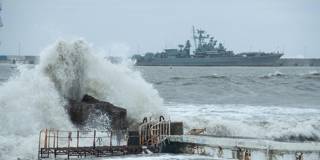
The Ukraine War Threatens Russia’s Regional Influence
Unless the Kremlin is victorious in Ukraine, its geopolitical role in the Black Sea, the Mediterranean, and the Middle East will shrink. These regions are increasingly interconnected in terms of security dynamics, which should inform the West’s containment strategy against Russia.
OXFORD – Russian President Vladimir Putin’s vision of restoring Russia to its rightful place as a global power has long rested on dominating the Black Sea and projecting power in the Mediterranean and the Middle East. In the years before Russia’s full-scale invasion of Ukraine, Putin largely succeeded in that goal.